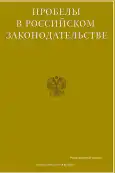Distribution of Extremist Materials on the Internet: Problems of Detection
- Authors: Mukhtarov D.J.1
-
Affiliations:
- Krasnodar University of the Ministry of Internal Affairs of Russia
- Issue: Vol 16, No 5 (2023)
- Pages: 161-165
- Section: General theoretical, criminal-legal and other problems of Countering extremism and terrorism. Problems of preventing extremism and terrorism
- URL: https://journal-vniispk.ru/2072-3164/article/view/250160
- EDN: https://elibrary.ru/JLOXXK
- ID: 250160
Cite item
Abstract
The purpose of this study was to study the problems of detecting extremist materials on the Internet. The methods of combating this phenomenon are analyzed.
It is established that extremism is not a single form, but their totality. Actions of an extremist nature can be committed by either one person or a group of persons in order to achieve their political and other goals. As a result of the fact that every year the Internet is increasingly integrated into all spheres of activity of corporate structures, public authorities, citizens, not only the convenience of transmitting information is growing, but also new, previously unknown threats are emerging. The more the Internet is introduced into the public sphere, the more threats emanate from it, a system to combat which has yet to be developed. In order to balance relations within cyberspace, legislative regulation of the Internet and actions in it is required. For the Russian segment of the Internet, legal regulation is a necessity. Forms of extremism are constantly changing, this is clearly noticeable by the methods they use, for example, on the Internet. To combat this phenomenon, the States of the world must unite. The more countries enter into the agreement, the less likely international terrorists and extremists will be to cause harm. To effectively combat the propaganda of extremism in social networks, it is necessary to create a working mechanism that will allow you to continuously monitor information, block prohibited information, as well as take other measures provided for by the law of the Russian Federation.
It is concluded that the state should adopt a number of regulatory legal acts that facilitate the monitoring and blocking of prohibited materials, preventing the involvement of young people in various extremist movements and groups, and terrorist activities.
Full Text
##article.viewOnOriginalSite##About the authors
Dalgat J. Mukhtarov
Krasnodar University of the Ministry of Internal Affairs of Russia
Author for correspondence.
Email: mr.dalgat1980@mail.ru
Police Lieutenant Colonel, Senior lecturer of the Department, North Caucasus Institute for Advanced Studies (branch)
Russian Federation, Nalchik, KBRReferences
- Aripshev A.M. Extremism and terrorism in social networks: problems of detection and counteraction // Journal of Applied Research. 2022. Vol. 1. No. 9. pp. 44-48.
- Baranov V.V. Activity of internal affairs bodies for the prevention of extremist crimes committed using the Internet // Proceedings of the Academy of Management of the Ministry of Internal Affairs of Russia. 2023. No. 1 (65). pp. 104-111.
- Gorchakova L.V. Extremism on the Internet and how it should be combated // In the collection: Priorities of socio-economic development of the Eurasian space. Collection of articles on the results of the International Scientific and Practical Conference. Sterlitamak, 2021. pp. 7-12.
- Korkmazov A.V. On the factors activating the growth of extremism and terrorism in modern conditions // Gaps in Russian legislation. 2022. Vol. 15. No. 4. pp. 154-158.
- Kuchmezov R.A. Extremism on the Internet: legal foundations and problems of counteraction // Eurasian Law Journal. 2022. No. 2 (165). pp. 437-438.
- Magomedov M.N., Bosieva Yu.G. On ways of countering youth extremism // State service and personnel. 2021. No. 1. pp. 146-147.
- Mishin A.M. Problems of countering extremism on the Internet // Eurasian Law Journal. 2020. No. 2 (141). pp. 389-390.
- Pavlinova E.Y. Problems of countering extremism on the Internet // Law and Power. 2019. No. 2. pp. 50-53.
- Takov A.Z. The spread of extremist ideology on the Internet: problems of detection and counteraction measures // Journal of Applied Research. 2022. No. 5-2. pp. 196-199.
- Cherkesov A.Y. Globalizing factors favoring 10. The spread of information extremism and terrorism: problems and ways of countering // Education and law. 2021. No. 6. pp. 367-371.
- Shishina E.A., Dyachko N.A. Network threats: counteraction problems and prospects // In the collection: Information and telecommunication technologies in countering extremism and terrorism. Materials of the All-Russian Scientific and practical conference. Editorial board: A.V. Eskov, A.S. Arutyunov, K.I. Rudenko [et al.]. Krasnodar, 2021. pp. 147-152.
Supplementary files








